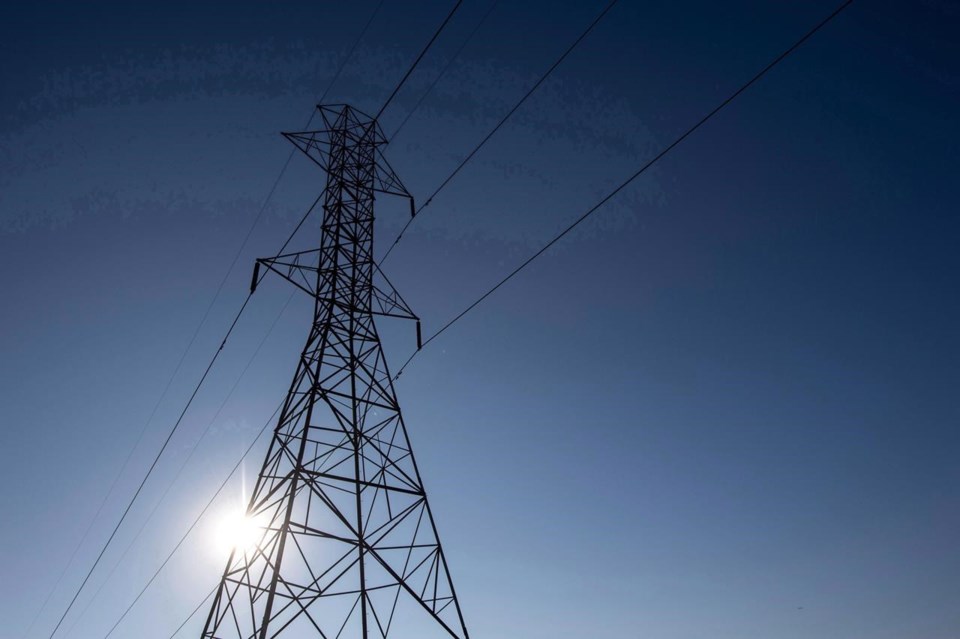FREDERICTON — New Brunswick's power utility has questioned the viability of the Atlantic Loop energy project because of the potential costs.
The Atlantic Loop aims to wean Nova Scotia and New Brunswick off coal with hydroelectricity from Quebec and Newfoundland and Labrador. For New Brunswick, the project proposes to bring an additional 1,150 megawatts of transmission capacity into the province from Quebec by 2030.
"The new transmission infrastructure would reinforce currently limited pathways and alleviate bottlenecks in existing infrastructure, notably in the southeast of New Brunswick," said a report from NB Power. It would also offset greenhouse gas emissions from Coleson Cove and Bayside generating stations and allow the province to achieve a 98 per cent reduction of greenhouse gases from 2005 levels after 2035, it added.
However, the report said the loop is an expensive option.
"The combination of infrastructure cost plus increased generation and purchased power costs would raise costs to New Brunswick electricity customers by $270 to $310 million per year in the 2040s, an approximate seven to nine per cent increase in costs in those years over the scenarios without the Atlantic Loop," it said.
While the benefits of the project are numerous, the utility said the capital investment is estimated at roughly $6 billion.
"The capital, financing and operations and maintenance costs of the Atlantic Loop are large, exceeding $100 million in each year after the project comes into service. This creates a significant barrier to overcome in order to make the project a least-cost solution for New Brunswickers," it said.
"There would need to be a larger savings on the side of generation and purchased power costs to make the project viable, but we see the opposite happening, with increases to these costs under the Atlantic Loop scenarios."
The utility said global challenges such as inflation, political and social unrest, supply chain disruption and climate change are affecting NB Power. Over the past year, it said it had conducted surveys and discussions with First Nations and customers to understand their priorities and needs for power generation and distribution.
"The results showed us that New Brunswickers prioritized low rates and service reliability above clean energy, customer options and debt management," it said.
NB Power proposed building lower-cost, carbon-free sources of electricity, such as wind and solar farms in the province. However, it warned that wind or any other renewables would require significant investment in transmission and distribution infrastructure for which the costs have not yet been calculated.
"The general takeaway is that there is no one solution," it said.
This report by The Canadian Press was first published Aug. 4, 2023.
The Canadian Press




